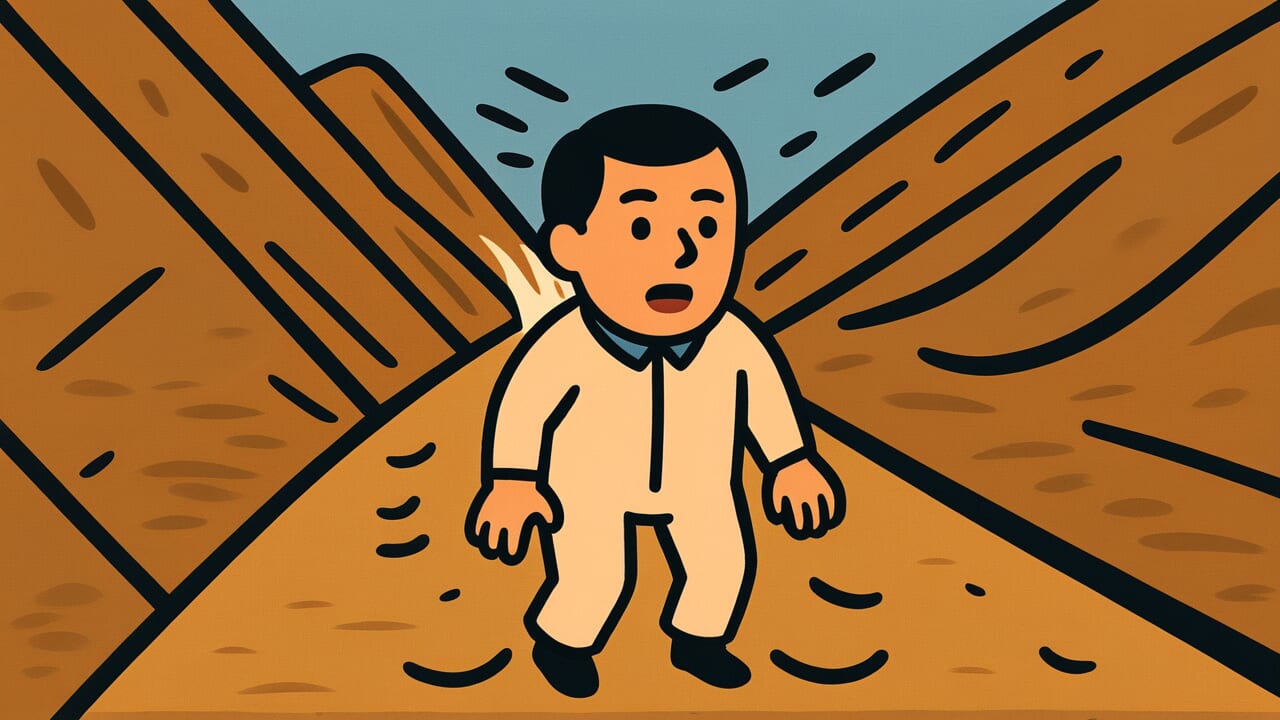How to Read “A narrow valley dries up quickly”
Tani semaki mono wa sumiyaka ni karu
Meaning of “A narrow valley dries up quickly”
This proverb means that narrow-minded people decline quickly. The “narrow-mindedness” here refers to lacking the capacity to accept others, stubbornly clinging to one’s own ideas, and having an inflexible attitude.
Such people have weak relationships with those around them and easily become isolated.
Just as water in a narrow valley dries up quickly, narrow-minded people lose their source of human relationships. They gradually lose power both mentally and socially.
People cannot live alone. Only through interaction and cooperation with others can we lead rich lives.
This proverb is used when criticizing small-minded people or explaining the importance of having a generous spirit. It’s also used as a warning to oneself.
It teaches us the importance of always keeping an open mind and accepting others. Even in modern society, the importance of recognizing diversity and having a tolerant heart remains unchanged.
Origin and Etymology
No clear written records remain about the origin of this proverb. However, we can make interesting observations from the words themselves.
“谿” means valley or gorge, and “陜” is a character meaning narrow. So “谿陜き” expresses a narrow valley or narrow gorge.
“涸る” means to dry up or run out of water. From this structure, we can see this wisdom came from observing nature.
In reality, small streams flowing through narrow valleys dry up quickly during droughts. Meanwhile, great rivers with wide channels don’t dry up from a little drought.
The essence of this proverb is overlaying this natural principle onto the human heart.
Since ancient times, Japan has had a culture of finding life lessons by comparing natural phenomena to human behavior. Water flow was seen as a symbol of vitality and energy.
Its abundance was connected to breadth of mind. Just as narrow valleys dry up quickly, narrow-minded people lose their strength early.
This metaphorical expression based on natural observation was passed down through generations over many years. It’s believed to have become established as a proverb this way.
Usage Examples
- That boss is like “A narrow valley dries up quickly” – he won’t listen to his subordinates’ opinions, so nobody follows him anymore
- If you don’t keep an open mind, “A narrow valley dries up quickly” – you’ll eventually become isolated
Universal Wisdom
The universal truth this proverb speaks of is the deep relationship between human vitality and breadth of mind. Why do narrow-minded people decline quickly?
It’s because humans are fundamentally social creatures.
Having a narrow mind means closing yourself off from contact with others. Being critical, unwilling to accept, and insisting on your own correctness.
Such attitudes may seem to protect you, but they actually isolate you. People receive stimulation through relationships with others, learn, and grow.
Those who lose these opportunities stagnate mentally and eventually decline.
Throughout history and across cultures, great people share one thing: breadth of mind. Accepting different opinions, interacting with diverse people, and having the capacity to forgive failures.
This isn’t just kindness – it’s wisdom for enriching yourself.
Water stays clean by flowing; when it stagnates, it rots. The human heart is the same.
Into an open and broad mind, new ideas and encounters with people constantly flow. This keeps that person full of vitality.
This proverb has been passed down for hundreds of years because it captures the essence of human nature so perfectly.
When AI Hears This
The fact that shallow, narrow streams flow quickly can be explained by the continuity equation in fluid dynamics. If water volume is constant, the smaller the cross-sectional area, the faster the flow velocity.
In other words, a stream 1 meter wide and 10 centimeters deep flows 10 times faster than a river 10 meters wide and 1 meter deep with the same water volume.
What’s important here is that faster flow increases evaporation surface area and air contact efficiency. When flow velocity doubles, the water surface area touching air in the same time doubles, increasing evaporation.
Furthermore, from Bernoulli’s principle, areas with faster flow have lower pressure. This makes it easier for water molecules to change from liquid to gas.
In other words, fast-flowing streams are physically in a state that evaporates more easily.
Additionally, shallow streams have a larger surface area to volume ratio. A stream 10 centimeters deep has 10 times the surface area of a river 1 meter deep with the same water volume.
This is the same principle as crushed sugar cubes dissolving faster.
In other words, “speed” is actually proof of “lack of margin.” Systems where energy is concentrated in velocity lose their buffering capacity against environmental changes.
The more spectacular a phenomenon appears, the lower its sustainability actually is. This physical law is hidden in this proverb.
Lessons for Today
What this proverb teaches modern people is that breadth of mind is the source of a rich life. This teaching holds important meaning precisely because we live in an era of fierce opinion conflicts on social media and increasing diversity of values.
Specifically, when you encounter an opinion different from yours, don’t immediately reject it. Instead, pause and listen.
The attitude of trying to understand the other person’s background and thinking broadens your own perspective. At work, don’t dismiss suggestions from juniors or subordinates outright.
Look for points you can learn from them.
Also, tolerance toward failure shows breadth of mind. People who can admit their own failures can forgive others’ failures too.
Perfectionism and being strict with yourself and others ultimately makes relationships stifling and corners you.
Having a broad mind doesn’t mean sacrificing yourself. Rather, by accepting diverse ideas and people, you yourself grow and gain vitality.
If you live with a heart as abundant as a great river, your life will never dry up.



Comments